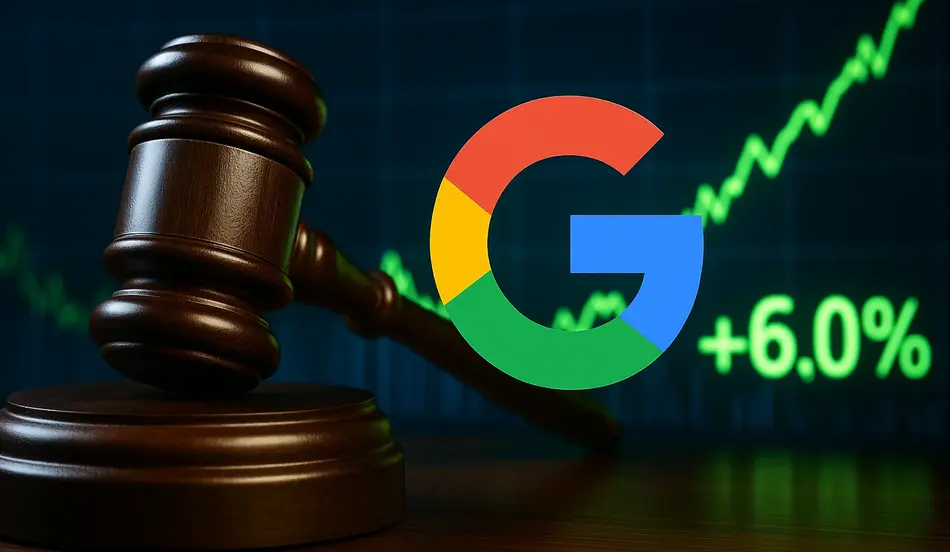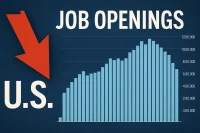Google Antitrust Ruling has taken center stage in the tech and financial worlds after a landmark decision by a federal judge. In a stunning turn of events, Google emerged victorious in the high-profile antitrust case, with the court ruling that the company will not be required to divest its Chrome browser business. This decision sent Google’s stock soaring by 6% in after-hours trading, underscoring the market’s confidence in the company’s future. In this comprehensive analysis, we’ll explore the details of the ruling, the immediate stock market reaction, the value of Chrome as an asset, the role of exclusive agreements, shifts in the search market, the impact of AI competition, and what this means for tech giants like Meta, Amazon, and Apple.
Powerful Antitrust Ruling: What the Judge Decided
The focus of the Google antitrust ruling was whether Google’s dominance in the search and browser markets constituted an unfair monopoly. The Department of Justice argued that Google’s control over Chrome and its exclusive agreements with device manufacturers stifled competition. However, the judge found that while Google’s market position is formidable, there was insufficient evidence to mandate the divestiture of Chrome. The court emphasized that consumer choice and innovation have not been significantly harmed, and that forced divestiture could disrupt the broader tech ecosystem.
Stock Market Reaction: Google Shares Surge
Following the announcement of the Google antitrust ruling, investors responded with enthusiasm. Google’s parent company, Alphabet, saw its shares jump 6% in after-hours trading. This surge reflects investor relief that Google will retain its lucrative Chrome business, which is integral to its advertising and data collection strategies. For more insights on how tech stocks react to regulatory news, visit Bloomberg Technology.
Chrome’s Asset Value and Google’s Business Model
Chrome is more than just a browser; it’s a gateway to Google’s vast ecosystem of services. The browser’s integration with Google Search, Gmail, and YouTube makes it a critical asset for user engagement and data collection. The Google antitrust ruling highlighted Chrome’s role in maintaining Google’s dominance in digital advertising. By retaining Chrome, Google preserves its ability to innovate and offer seamless experiences across devices.
Post Your Job with WhatJobs
Looking to hire top talent in the fast-evolving tech industry? Post your job on WhatJobs today and connect with qualified candidates who are ready to drive your business forward.
Post a Job Today →Exclusive Agreements and Search Market Dynamics
One of the central issues in the Google antitrust ruling was the company’s use of exclusive agreements with device manufacturers and carriers. These deals ensured that Google Search remained the default option on billions of devices worldwide. While critics argue that such agreements limit consumer choice, the court found that users can easily switch search providers if they wish. The ruling suggests that market forces, rather than regulatory intervention, should drive competition in the search space. For more on how search market dynamics are evolving, read our feature on Search Market Evolution.
AI Competition: The Next Frontier
The Google antitrust ruling arrives at a time when artificial intelligence is reshaping the tech landscape. Google’s investments in AI, from search algorithms to voice assistants, have kept it at the forefront of innovation. However, the ruling also opens the door for increased competition from rivals like Microsoft, which has integrated AI into its Bing search engine, and emerging players leveraging generative AI. The court’s decision not to break up Google allows the company to continue investing in AI, but it also signals to competitors that the market remains open for disruption. Explore how AI is transforming recruitment in our article on AI in Recruitment.
Implications for Meta, Amazon, and Apple
The Google antitrust ruling has far-reaching implications for other tech giants. Meta, Amazon, and Apple are all facing increased regulatory scrutiny over their business practices. The court’s decision sets a precedent that could influence future antitrust cases, particularly regarding the need for structural remedies like divestitures. For Meta, the focus may shift to data privacy and social media dominance. Amazon could face questions about marketplace practices, while Apple’s control over its App Store remains a hot topic. The ruling underscores the importance of innovation and consumer choice in shaping the future of tech regulation.
FAQ: Google Antitrust Ruling
What is the Google antitrust ruling?
The Google antitrust ruling refers to the recent court decision that found Google does not need to divest its Chrome browser business, despite concerns over its market dominance.
How did Google’s stock react to the antitrust ruling?
Google’s stock surged 6% in after-hours trading following the announcement, reflecting investor confidence in the company’s future.
What role does Chrome play in Google’s business model?
Chrome is a key asset for Google, serving as a gateway to its ecosystem and supporting its advertising and data collection strategies.
How does the ruling affect competition in the search market?
The ruling suggests that competition should be driven by market forces rather than regulatory intervention, allowing users to choose their preferred search providers.
What are the broader implications for other tech giants?
The decision sets a precedent for future antitrust cases involving companies like Meta, Amazon, and Apple, emphasizing innovation and consumer choice.
Investor Perspective on Google’s Antitrust Victory
Consider the case of an institutional investor who held a significant position in Alphabet prior to the ruling. The uncertainty surrounding the antitrust case had weighed on the stock, prompting some to hedge their bets. However, the judge’s decision not to force a Chrome divestiture led to a swift 6% rally in after-hours trading. This immediate gain not only boosted portfolio returns but also restored confidence in Alphabet’s long-term growth prospects. As regulatory risks recede, investors are now reassessing their exposure to tech stocks, with Google’s antitrust victory serving as a catalyst for renewed optimism in the sector.
For more updates on the latest tech industry news and analysis, stay tuned to WhatJobs News.




